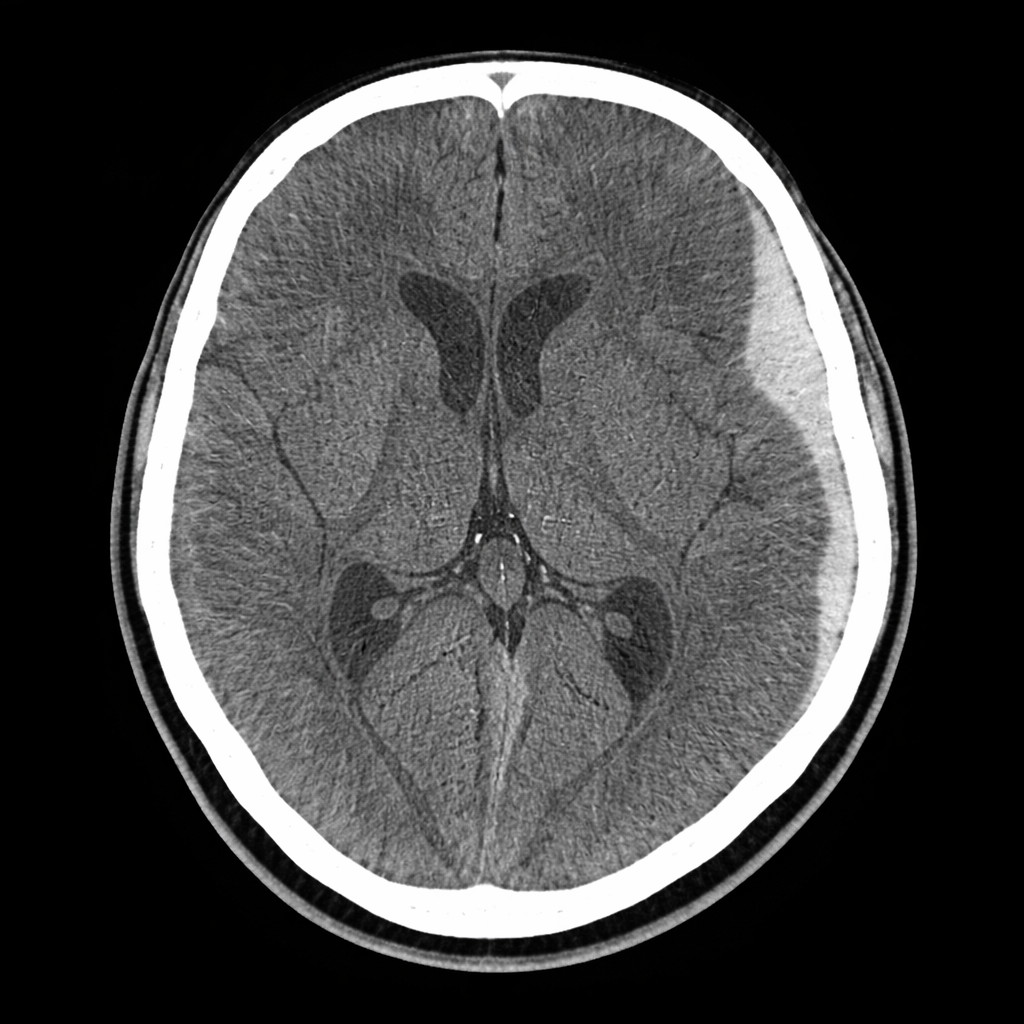
CHINS and DCS in Indiana: A Comprehensive Guide for Parents
Protect your family with expert insights into DCS investigations, CHINS proceedings, and your legal rights in Indiana.
Protect your family with expert insights into DCS investigations, CHINS proceedings, and your legal rights in Indiana. When the Indiana Department of Child Services (DCS) gets involved, the stakes couldn’t be higher—child removal and life-altering consequences may loom. At Vining Legal, our dedicated team is here to fight for your parental rights and guide you through this challenging time.
Protect your family’s future by taking the first step. Let’s talk today.
What Are CHINS and DCS in Indiana?
In Indiana, the child welfare system revolves around two critical concepts: CHINS (Child in Need of Services) and the Department of Child Services (DCS). Understanding these terms is essential for any parent or guardian facing potential intervention by the state. CHINS is a legal status designated when a child is deemed to require court intervention due to circumstances such as neglect, abuse, or other conditions that jeopardize their safety or well-being. This status does not automatically mean a child will be removed from the home; rather, it triggers a process to assess and address the child’s needs, which may involve services, supervision, or, in severe cases, removal. The DCS, on the other hand, is the state agency responsible for overseeing child welfare, conducting investigations into reported concerns, and implementing actions to protect children, including initiating CHINS proceedings when necessary.
Key terms to grasp include:
Substantiation: A finding by DCS that allegations of abuse or neglect are supported by evidence, which can lead to further legal action or services.
Removal: The physical relocation of a child from their home to a safer environment, such as foster care, if immediate danger is determined.
Appeals: The process by which parents can challenge a DCS substantiation or decision, seeking to reverse or modify the outcome.
The interplay between CHINS and DCS can be complex and intimidating. For instance, the Department of Child Services (DCS) may initiate a CHINS case if a child is at risk due to neglect or abuse. Understanding this process is critical to protecting your rights as a parent. Early intervention, legal representation, and knowledge of your rights can make a significant difference in the outcome. Without proper guidance, families may face unnecessary disruptions, such as child removal or long-term supervision, which can have lasting impacts. By familiarizing yourself with the system, you can better navigate investigations, respond to allegations, and work toward resolutions that prioritize your family’s well-being.
For a deeper dive into when a child may be classified as in need of services, explore the specific requirements and scenarios that trigger a CHINS case in Indiana. Learn the key requirements for a CHINS case.
Your Free Indiana CHINS Guide: A Guide for Parents Needing Help
The DCS Investigation Process
The Department of Child Services (DCS) investigation process in Indiana is a critical phase that can significantly impact families when concerns about a child’s safety or well-being arise. This process begins with a report—often submitted anonymously or by mandated reporters such as teachers, doctors, or social workers—alleging potential neglect, abuse, or other risks to a child. Once a report is received, DCS assesses its credibility and, if deemed valid, initiates an investigation. This typically involves home visits, interviews with the child, parents, and other household members, and sometimes collaboration with law enforcement if immediate danger is suspected. The investigation aims to determine whether a child is in need of services (CHINS) or if more severe action, such as removal, is warranted. Understanding this process is vital for parents to protect their rights and respond effectively.
Central to the investigation is the role of DCS caseworkers, who are trained professionals tasked with gathering evidence, assessing family dynamics, and making recommendations to the court. Caseworkers conduct home assessments to evaluate living conditions, interview all parties involved, and document findings, which may include photographs or written reports. Their decisions can lead to a range of outcomes, from offering voluntary services to filing a CHINS petition if risks persist. However, caseworkers are not infallible, and errors or biases can occur, making it essential for parents to know their legal rights during this phase. These rights include the right to refuse entry without a court order (unless exigent circumstances exist), the right to legal representation, and the right to challenge findings through an appeal process.
The emotional and legal stakes are high during an investigation. Parents may feel overwhelmed by unexpected visits or interrogations, but preparation and awareness can mitigate risks. For instance, knowing how to handle initial contact from CPS can prevent missteps that might escalate the situation. Similarly, preparing for a DCS interview can help parents present their side accurately, potentially avoiding substantiation or removal. The process typically concludes with a determination—either unsubstantiated (no action) or substantiated (leading to services or court involvement)—within 45 days, though extensions can occur if complex issues arise.
Initial Contact and Investigations
The first step in a DCS investigation often involves an unexpected knock at the door. Knowing how to respond can protect your family’s rights and future. What to do if CPS contacts you offers practical steps to navigate this critical moment.
Preparing for a DCS Interview
A DCS interview can shape the outcome of an investigation. Being prepared ensures you can articulate your perspective effectively. Get ready for your interview provides essential tips for parents facing this challenge.
Common Issues in a DCS Case
-
DCS investigations are sometimes based on incomplete or incorrect information, leading to inaccurate conclusions in the CHINS petition. If your version of events doesn’t align with the allegations, it’s crucial to present clear evidence and advocate for the truth.
-
Your children may have been removed from your care and placed in foster care, even when capable and willing family members are available to care for them. Alternatively, if your children are with family, you may need help navigating the process to reunite them with you as quickly as possible.
-
A lack of timely communication from DCS can leave you feeling frustrated and powerless. Whether you’re struggling to get answers to your questions or facing delays in receiving critical updates, this lack of responsiveness can hinder your ability to move forward in your case.
-
You may be asked to participate in services that haven’t yet started or that don’t seem relevant to your situation. Understanding which services are genuinely necessary and how to advocate for your needs is essential to avoiding wasted time and resources.
Understanding CHINS Proceedings
The Child in Need of Services (CHINS) legal process in Indiana is a structured judicial procedure designed to address situations where a child’s safety, health, or welfare is at risk due to neglect, abuse, or other challenging circumstances. This process begins with the filing of a CHINS petition by the Department of Child Services (DCS) or another authorized party, typically following an investigation that identifies significant concerns. The petition outlines the alleged issues—such as parental inability to provide adequate care, substance abuse, or environmental hazards—and requests court intervention to protect the child. Once filed, the case enters the court system, where a judge oversees proceedings to determine the child’s needs and the appropriate course of action.
The CHINS process involves several key stages, starting with an initial hearing where parents are notified of the allegations and can respond, often with legal representation. Subsequent hearings may include fact-finding sessions to evaluate evidence, such as witness testimony, DCS reports, or home assessments, to substantiate or refute the claims. Court involvement can vary in intensity, ranging from ordering family services (e.g., counseling, parenting classes) to temporary or permanent removal of the child if the risk is deemed severe. Throughout this process, the court aims to balance the child’s best interests with parental rights, though the outcome depends heavily on the evidence presented and the family’s ability to comply with court directives.
Potential outcomes of a CHINS case are diverse. If the court finds the child in need of services, it may mandate DCS supervision, require participation in rehabilitation programs, or place the child with a relative or in foster care. Removal is a last resort, occurring only when the home environment poses an immediate threat, but it can lead to long-term consequences like termination of parental rights if issues remain unresolved. Conversely, if parents successfully address the concerns—through cooperation with DCS or legal challenges—the case may be dismissed or resolved without ongoing intervention. The emotional toll on families is significant, and navigating this process without guidance can lead to misunderstandings or missed opportunities to protect parental rights.
Understanding the CHINS proceedings empowers parents to engage proactively. For example, knowing when to seek legal counsel or how to present evidence can influence whether the case escalates or resolves favorably. The process typically spans weeks to months, depending on the complexity, with regular court reviews to monitor progress. This legal framework, while intended to safeguard children, requires parents to be informed and prepared to advocate for their family’s future.
CHINS Case Basics
Grasping the fundamentals of a CHINS case is the first step to protecting your rights. Guide to CHINS proceedings provides a detailed roadmap for parents navigating this process.
Resolving and Dismissing Cases
Successfully resolving or dismissing a CHINS case can preserve your family’s unity. How to dismiss a CHINS case offers strategies to achieve a positive outcome.
CHINS Process: What to Expect
Your Rights and How to Respond
When the Department of Child Services (DCS) becomes involved in a family’s life in Indiana, parents are often thrust into a challenging and unfamiliar legal landscape. However, understanding and asserting your rights as a parent can make a significant difference in protecting your family. Parental rights under Indiana law include the fundamental right to due process, ensuring fair treatment throughout DCS investigations and CHINS proceedings. This means you are entitled to notice of allegations, an opportunity to be heard, and the chance to present evidence or witnesses. Additionally, you have the right to legal representation, which is critical for navigating the complexities of DCS interactions, challenging unsubstantiated claims, or appealing decisions. These rights are constitutionally protected, but they require active engagement to uphold, especially when faced with the authority of a state agency.
Responding effectively to DCS involvement involves several practical steps. First, remain calm and avoid making statements that could be misconstrued during initial contact, as anything you say can be used in court. Second, request legal counsel immediately—whether through a public defender or a private attorney—to guide you through interviews, home visits, and hearings. Third, document all interactions with DCS, including dates, times, and details of conversations, to build a record that can support your case. If a child is removed, you have the right to a prompt hearing to challenge the removal, and understanding the timeline (typically within 48-72 hours) is crucial. Cooperation with DCS, when appropriate, can also demonstrate your commitment to your child’s well-being, potentially avoiding escalation, but it should always be balanced with protecting your legal interests.
The stakes are high, as DCS involvement can lead to substantiation, ongoing supervision, or even loss of custody. For example, a parent unaware of their right to refuse entry without a court order might inadvertently allow a search that leads to adverse findings. Knowledge is power in these situations, and being proactive can help mitigate risks. Whether it’s understanding your legal protections or learning how to respond strategically, equipping yourself with the right information can shape the outcome of DCS proceedings.
Your Rights as a Parent
Knowing your legal protections is the foundation of defending your family. Understand your rights provides a detailed look at your rights during DCS investigations.
Essential Insights for Parents
Navigating a CHINS case requires practical knowledge. Get key insights offers five critical tips for parents facing DCS involvement.
Appeals, Substantiations, and Resolutions
When the Department of Child Services (DCS) in Indiana determines that a child has been subjected to abuse or neglect, it issues a substantiation, a formal finding that can have far-reaching consequences for parents. A substantiation occurs after an investigation where DCS concludes, based on evidence such as witness statements, home conditions, or medical reports, that allegations of maltreatment are supported. This designation can lead to mandatory services, ongoing supervision, or even child removal, and it may remain on a parent’s record, potentially affecting future custody battles or employment opportunities. Understanding what substantiation entails is the first step toward addressing its impact, as it marks a pivotal moment where parents must decide how to respond—whether through compliance, negotiation, or legal challenge.
The appeal process offers a critical avenue for contesting a DCS substantiation. In Indiana, parents have the right to request an administrative review within 30 days of receiving the substantiation notice. This two-step process begins with an internal DCS review, where a supervisor re-evaluates the evidence, followed by a potential appeal to the Office of Administrative Law Proceedings (OALP) if the initial decision stands. During these reviews, parents can present new evidence, call witnesses, or argue procedural errors, such as lack of due process. Success in an appeal can result in the substantiation being overturned or modified, potentially removing the need for services or preventing long-term consequences. However, the process is time-sensitive and complex, requiring a clear understanding of deadlines and legal strategies.
Navigating outcomes after a substantiation or appeal involves assessing the court’s final decision. If substantiated, DCS may require a safety plan, parenting classes, or therapy, with periodic reviews to monitor compliance. Resolution can occur through cooperation—demonstrating improved conditions—or legal action, such as dismissing a CHINS case if the risk is mitigated. Conversely, an unsuccessful appeal might lead to a CHINS petition or removal, prompting further court involvement. For example, a parent who appeals a substantiation based on flawed evidence (e.g., a misinterpreted home visit) might succeed in having it reversed, preserving their family’s stability. The emotional and legal stakes are high, and outcomes often hinge on preparation, evidence, and timely action.
This phase of DCS involvement underscores the importance of legal guidance. Whether challenging a substantiation or seeking resolution, parents must act swiftly and strategically to protect their rights and their child’s best interests. The process can be daunting, but with the right approach, it’s possible to influence the trajectory of the case.
Appealing a Substantiation
Challenging a DCS substantiation is crucial to safeguarding your future. Learn to appeal a substantiation and understand the two-step process for a successful challenge.
Navigating Substantiations and Appeals
Effectively managing this process requires insight and strategy. Navigate appeals to understand your options and next steps.
Regaining Custody and Preparation Tips
Facing the removal of a child by the Department of Child Services (DCS) in Indiana can be one of the most distressing experiences for a parent, but there are pathways to regain custody and strategies to prepare for future DCS interactions. Regaining custody after removal requires a deliberate and proactive approach, beginning with compliance with the court-ordered safety plan or services mandated by DCS, such as parenting classes, counseling, or substance abuse treatment. Parents must demonstrate consistent improvement in the conditions that led to removal—whether it’s addressing housing issues, mental health concerns, or family dynamics—through regular progress reports and home assessments. The court will typically schedule review hearings, often every three to six months, to evaluate whether reunification is feasible, basing its decision on evidence of stability and the child’s best interests.
Preparation is equally critical when dealing with DCS to prevent escalation or additional removals. Before any interaction, parents should gather documentation—such as medical records, school reports, or character references—to support their case. During home visits or interviews, maintaining a calm demeanor, avoiding confrontational responses, and requesting legal representation can protect against misinterpretations. For instance, understanding your right to refuse entry without a court order (unless immediate danger is evident) can prevent unauthorized searches that might lead to adverse findings. Additionally, attending all scheduled meetings and cooperating where appropriate, while asserting your rights, can build a positive record with DCS. Preparation also involves anticipating questions about the child’s well-being, ensuring the home environment meets safety standards, and being ready to address any prior concerns raised by the agency.
Success in regaining custody often hinges on persistence and legal support. A parent who actively engages with DCS requirements and presents a compelling case—such as improved living conditions or completed programs—may see their child returned within months, depending on the case’s severity. Conversely, lack of preparation or failure to address underlying issues can prolong separation. By equipping themselves with knowledge and resources, parents can navigate this challenging process with greater confidence and increase their chances of reuniting with their child.
Steps to Regain Custody
Reclaiming your child after a DCS case requires a clear plan. Steps to regain custody outlines the process to guide you through reunification.
Navigating Child Removal
Understanding the removal process can help you respond effectively. Guide to child removal provides essential support for families in this situation.
FAQs
-
A CHINS case involves the Department of Child Services (DCS) alleging that a child is in need of services due to neglect, abuse, or other safety concerns. It’s a legal process designed to protect the child, but it can also impact your parental rights.
-
The process typically involves an investigation, court hearings, and recommendations for services or actions to resolve the case. Parents may be required to complete certain steps to demonstrate they can provide a safe and stable home for their child.
-
If DCS contacts you, it’s important to stay calm and cooperative. However, do not provide detailed information or sign any documents without consulting an attorney. An experienced lawyer can guide you through the process and protect your rights.
-
Yes, if DCS believes your child is in immediate danger, they can request a removal hearing or place your child in protective care. An attorney can help fight for your child to remain at home or be placed with trusted family members.
-
The timeline varies but typically involves multiple hearings and evaluations. Initial fact-finding hearings occur within 60 days, with extensions possible. Resolving a CHINS case can take months or longer, depending on the circumstances.
-
DCS may recommend services such as parenting classes, therapy, substance abuse treatment, or home evaluations. An attorney can help ensure these recommendations are appropriate and necessary.
-
Yes, having an experienced attorney is crucial. They can advocate for your rights, challenge evidence, and guide you through each step of the legal process to achieve the best outcome for you and your child.
Case Study: Abuse and Substance Abuse Allegations Resolved Pre-Hearing
Situation: Our client was accused of abuse and substance abuse, leading to the opening of a CHINS case. These serious allegations threatened their parental rights and could have escalated to a fact-finding hearing.
Outcome: We conducted a thorough investigation to establish there was no evidence of abuse in the home. Additionally, we worked with the client to address any concerns surrounding substance use, ensuring all issues were resolved before the fact-finding hearing. The CHINS case was successfully dismissed within three months before the fact finding, allowing the client to move forward without lasting legal repercussions.
Case Study: CHINS Case Dismissed Due to Service Verification
Situation: Our client faced a Termination of Parental Rights (TPR) case while working to comply with DCS recommendations. The issue arose because the client chose to complete services through a non-DCS-approved provider, leaving DCS unable to verify compliance.
Outcome: We meticulously gathered and presented all records from the client’s independent service providers, demonstrating full compliance with court-ordered services. With this verified evidence, we successfully argued for the dismissal of the CHINS case, enabling the client to maintain their parental rights.
Explore Related Resources
Contact Us Today to Take the Next Step
Facing a CHINS case or need legal guidance? We’re here to help you take control of the process and protect your family’s future. Whether you prefer to call, text, or schedule a consultation online, we’ve made it easy to get the support you need.
Call or Text Us: Reach us directly at (317) 279-5668. Our team is ready to discuss your situation, answer your questions, and help you get started.
Fill Out the Form Below: Share your details, and we’ll get back to you promptly to begin building your strategy.
Schedule a Consultation: Use our online scheduling tool to book an appointment at a time that works for you. Choose from a quick 15-minute consultation or a more in-depth session tailored to your needs.














